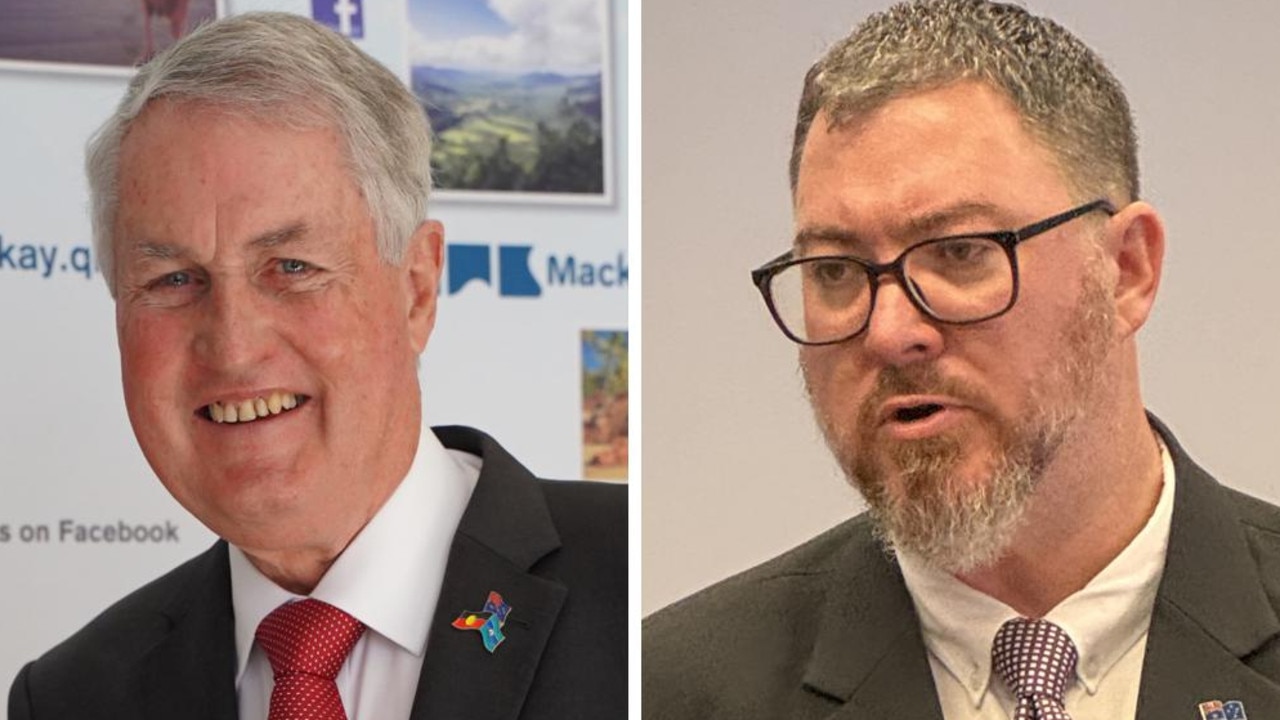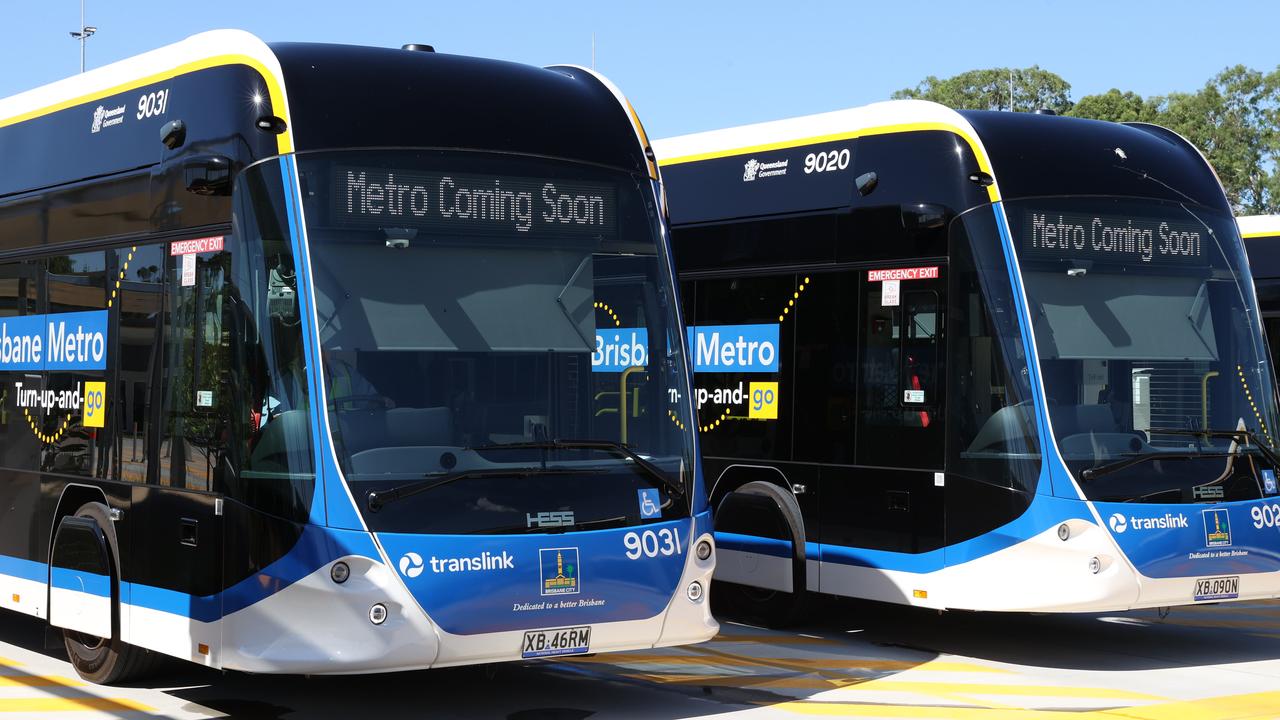Brisbane City Council election: Greens’ plan to turn Eagle Farm into social housing
The Greens have revealed they intend to compulsorily acquire Brisbane’s heritage-listed racing site and use it to ease the housing crisis.

QLD Council Elections
Don't miss out on the headlines from QLD Council Elections. Followed categories will be added to My News.
A controversial proposal to turn Eagle Farm Racecourse into affordable housing and green space has been slammed as unrealistic, attention-seeking, and part of “a Greens agenda to shut down horse racing”.
Greens lord mayoral candidate Jonathan Sriranganathan announced on Tuesday his intentions to compulsorily acquire the heritage-listed Brisbane Racing Club site in Ascot, if he is voted into power in Brisbane City Council at the March 16 election.
He believes about $40m in council funds would be sufficient, and then a Greens-led council would look to share the housing construction costs with the state government.
The 4000 medium-density dwellings would cover a fifth of the 49ha site and be built in buildings no higher than five storeys, which would also have commercial units underneath.
In addition to Racing Queensland chief executive Jason Scott labelling the idea “absurd”, The Courier-Mail reader poll - which attracted 1440 responses - revealed 85 per cent were against the idea.

Only 8 per cent were in favour, while 7 per cent asked for more information.
Brisbane Racing Club chief executive Tony Partridge released a detailed statement to members on Tuesday afternoon, slamming every aspect of Mr Sriranganathan’s blueprint.
“For starters, the BRC understands that Brisbane City Council does not have the power to resume land for housing in the way that the Greens propose,” Mr Partridge said.
“But the Greens’ proposals have never been based on reality. They despise horse racing and are clear in their desire to ban our sport.
“We are in the midst of a busy election year in Queensland and we understand that some political candidates will make comments to draw attention to themselves.
“It’s important that you understand the impact of this proposal and its part in a Greens agenda to shut down horse racing.”
Mr Partridge confirmed he had met with Mr Sriranganathan and Greens’ Federal MP Stephen Bates on January 30 regarding the proposal.
“Mr Sriranganathan and Mr Bates confirmed in the meeting that it is their desire to shut down horse racing,” he said.
“The Greens understand our position and understand that our ownership of Eagle Farm and its heritage status rule out their plan to turn our green space into high-density housing.”
Mr Partridge said destroying Eagle Farm Racecourse’s history, which dates back to 1865, will not help to ease the state’s housing crisis.
“There is no doubt housing affordability is a serious issue, but targeting the land that sustains an industry and generates so much revenue for the government is not the answer,” he said.
“Overall, the BRC’s events generate $150m in annual economic activity for Queensland.
“All wagering revenue from BRC meetings flows to Racing Queensland which helps to fund over 120 race clubs around the state.
“We support the employment of 1500 people each year. This includes jobs for Brisbane locals including many students and older workers.”
The Greens’ proposal is not new, Mr Sriranganathan and Mr Bates asked once again for public feedback on the longstanding party idea as recently as last August.
However, Mr Sriranganathan’s threat to compulsorily acquire the site through Brisbane City Council if he gain power later this month took the thought bubble to a new level.
Under the Greens’ proposal, half of the 4000 affordable homes would be available to those on the state’s social housing waitlist and rented for 25 per cent of regular household income.
The other half would be affordable housing available to any Brisbane resident, but rented out at 30 per cent below-market rent.
The rest of the site will be allocated to existing heritage-listed buildings, and under-construction Charlton House apartments which are part of Mirvac’s Ascot Green development.
The Greens would also allocate 25ha of the site as parkland and community sports fields, with the potential for a new public school and medical centre and library.
The party proposes to repurpose the racetrack as a walking and cycling circuit.
An older two-bedroom apartment in Ascot rents for $450-$550 per week, more modern two-bedroom units can fetch $600-650 per week in rent.

Based on the Greens proposal, the 2000 social homes would be available for waitlisted Department of Housing tenants for around $150-$165 per week, while the 2000 publicly-available affordable homes would be rented for $420-$455 per week.
Entering the home straight in the March 16 election race, Mr Sriranganathan acknowledged the significant cost involved and outlined how he would source the ratepayer funds.
“The $40m (initial cost to purchase the site) is a very small fraction of the council’s annual budget – around 1 per cent,” he said.
“We think we can help fund that by reducing spending on wasteful road projects and also by increasing infrastructure charges.
“As for the bigger long-term cost, we think there is a case for debt-funded investment.
“If there is a choice between ordinary residents having to take out massive mortgages to pay for housing, or the council using its borrowing power to finance housing construction, it makes sense for the council to take on a little bit of debt to fund that.
“The reality is that we desperately need more public housing and public green space in the city.
“This kind of bold proposal is the kind of forward thinking that the city has been missing for a long time.”
Mr Sriranganathan said he had not spoken to the state government about sharing building costs, but said he had met with Brisbane Racing Club “a couple of weeks ago”.
“They were very concerned about the proposal and pretty unwilling to engage in a voluntary resumption (of the site), and that’s why we’re suggesting compulsory acquisition might have to be on the table,” he said.
Mr Sriranganathan said the rental revenue from the 4000 affordable dwellings and ground-level shops would become a long-term revenue source for the council, and in the long-term help to pay back the project’s upfront costs.





